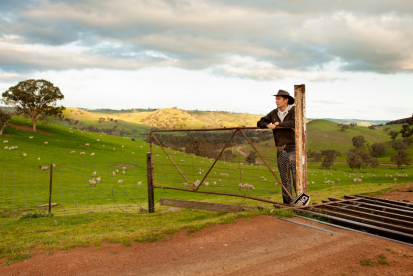Carbon Farming - a terminology we are all familiar with, but it's an area where we lack an in-depth understanding. Each year, we know that the effect of climate change is only intensifying, and a report from UN Framework Convention on Climate Change (UNFCCC) has labelled our planet on 'red alert'.
This is our planet, our responsibility. Whether you are a small business or a multi-international company, also at an individual level, we all have a part to play. With many countries in commitment to reaching net-zero emissions by 2050, major industries are increasingly looking to agribusinesses for carbon farming opportunities to offset their emissions. When done well, not only are there environmental benefits, but it can also increase your crop yields or stock productivity. If you are wondering what opportunities are out there and whether they can be monetised, this is where companies such as Green Collar can help.
In this blog, Malcolm Gillett, WA business Development Manager, explains what carbon farming is, why you as a farmer should start educating yourself about it, where it may fit into your farming business and its impact as another source of farm income.
What is carbon farming?
Carbon farming, in a nutshell, is making simple land management decisions, whether short term or long term, to increase the carbon level stored in the soil and vegetation (sequestration) and ultimately decrease the level of greenhouse gas emitted into the atmosphere.
So apart from the obvious environmental benefits, why should you care about it?
According to Malcolm, carbon farming is no different to anything you grow on your property; it's about growing a commodity that can be traded on the market. If you purely see this as commercial market access or a potential money-making opportunity - then fair enough. As climate concerns become more prevalent, carbon farming is here to stay, and it could potentially become a legal requirement in the future. Regardless of your reasons behind the adoption of carbon farming, it's about learning and listening to the industry changes and keeping your options open as a grower.
New kind of market
Carbon trading is relatively new, and it's easy to become overwhelmed. Malcolm's advice is to take your time, become aware of it, gather knowledge from basing multiple sources and educate yourself before making any decisions. As part of your education, get familiar with the many acronyms that exist within this industry.
Beginning with CER/Regulator - Clean Energy Regulator; a statutory body setup by the federal government overseeing the registration of products and methodologies and is responsible for a number of schemes aiming to reduce or offset Australia's carbon emissions.
One of the schemes is the Emission Reduction Fund (ERF); a voluntary scheme where companies such as Green Collar and even individual growers can register their projects back through the Regulator to access funds from the ERF. Once these registered projects are up and running, CER will issue Australian Carbon Credit Units (ACCUs).
ACCU is treated as a financial product that recognises that the grower has sequestered one ton of carbon dioxide equivalent. Once you, as a grower, have been issued ACCUs, you have the option to either sell back to the CER by bidding for a contract - abatement contract or trade through a secondary market to other entities, private organisations and international buyers. Major emitters within different industries realise they have to purchase credits to offset emissions as they simply can't remove them from their supply chains, meaning this could potentially be a lucrative income if you can generate a certain amount of credits from your land.
Getting third-party advice

WA Business Development Manager
There's no harm in approaching carbon providers such as Green Collar if you aren't sure where to start. As Malcolm stated, carbon providers are no different from your agronomist whose 'fee for service'. They are to provide advice relevant to the carbon space.
Regardless of which provider you choose, Malcolm's advice is to be wary of providers asking for an upfront cost - question their motives and economic drivers as to why they chose you as a landholder. For example, if the fine print says X amount of money needed to be put down to get a land management plan done, question it. Because there's no value for you, as a grower, to spend $5k-$10k to find out whether you might or not have a viable project.
With many providers within the market, it's important to take your time doing due diligence on the people/organisations you choose to work with. You should be able to have open conversations with your provider without the pressure in the background to try and sign you up for something you are not comfortable with or having to pay fees upfront.
Carbon farming is an ever-evolving space. Education is key, and start having conversations with your accountants, lawyers and industry professionals. As Malcolm said, carbon is no different to any other commodity you are producing - it's ultimately how much you think you can produce off your property and understanding what that may be worth in the market. Don’t hold back, and don’t be afraid to get involved as there are many opportunities await in the market.
If you like to find out opportunities on your farm use the CSIRO LOOC-C calculator to explore your options.
For more information on the topic of Carbon Farming with Malcolm, listen to our podcast Boots Off Log On! here.




